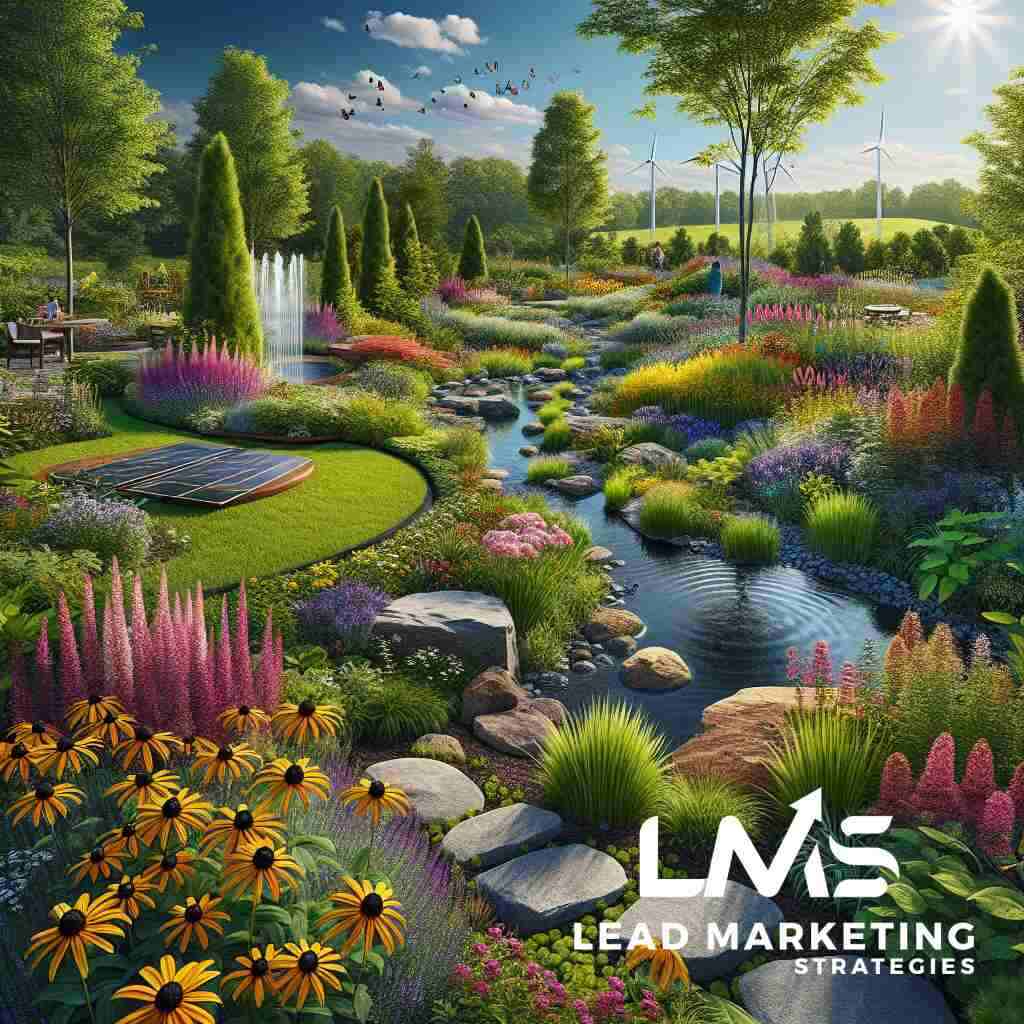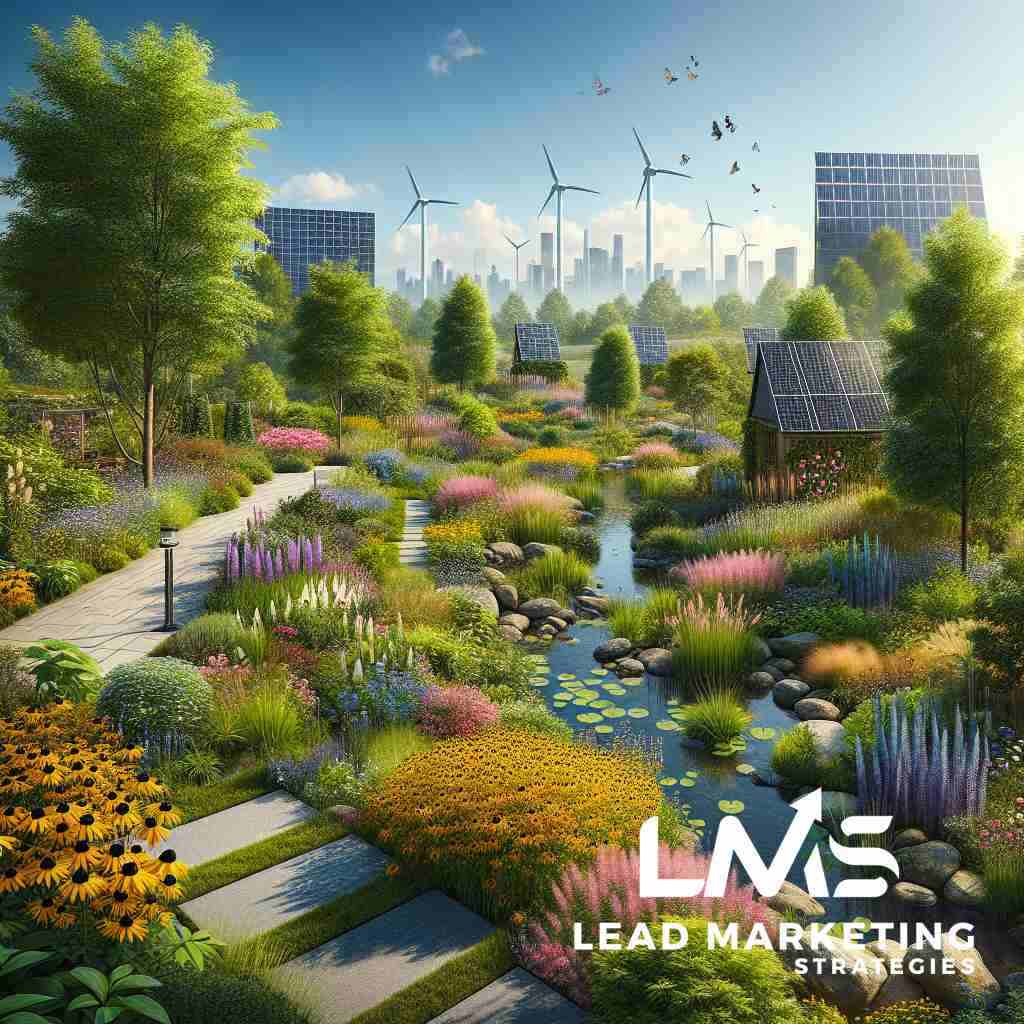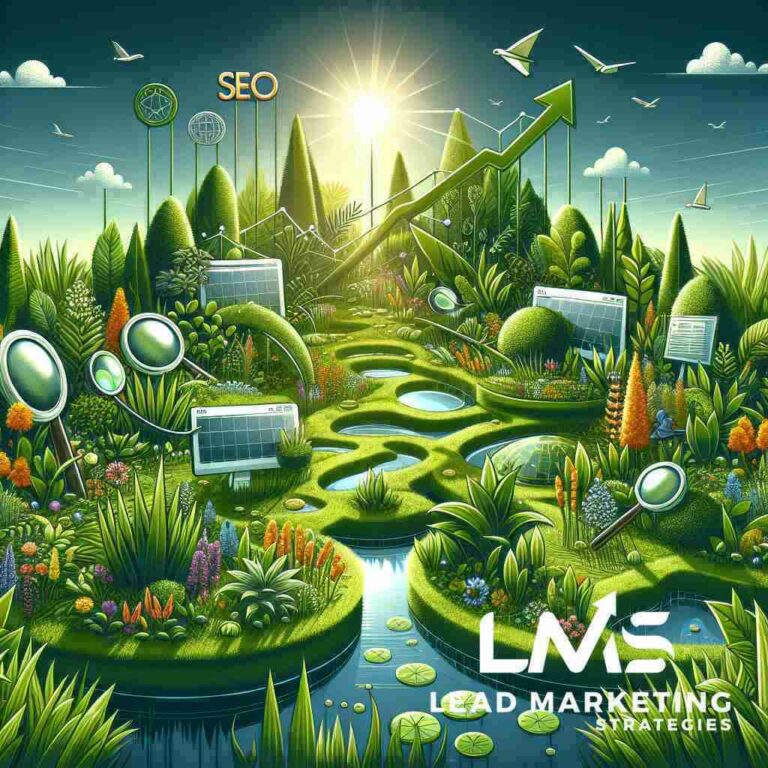Unveiling the Green Symphony: An Introduction to Eco-Friendly Landscaping in Delaware
The Urgency of Sustainable Landscaping Amidst Delaware’s Changing Climates
Delaware’s climate is shifting, necessitating a reevaluation of traditional landscaping techniques. Sustainable landscaping practices are crucial as temperature fluctuations and unpredictable weather patterns become more common. Implementing eco-friendly techniques not only preserves the local environment but also enhances landscapes’ resilience against climatic variances. By promoting eco-conscious landscaping in Delaware through thoughtful plant selection and water management, we can mitigate the impacts of climate change while beautifying our surroundings.
Eco-Innovation in Green Spaces: Delaware’s Call to Action
In Delaware, there is a growing movement toward integrating sustainable environmental practices into landscaping. Communities and professionals recognize the need for eco-innovation in transforming green spaces. By incorporating native plant species in Delaware, landscape designs reflect the region’s natural beauty and support local biodiversity. Homeowners and businesses are encouraged to embrace these eco-friendly practices to create landscapes that are both aesthetically pleasing and environmentally sustainable. This call to action aims to foster a culture of sustainability within the landscaping industry.
Forging a Path Towards Sustainable Beauty: A Preamble
The journey toward sustainable beauty in landscaping begins with a commitment to environmentally focused land use. Delaware’s landscapers acknowledge the importance of adaptive ecosystem restoration, which involves restoring native habitats and fostering robust ecosystems. By adopting green infrastructure advancements, such as rain gardens and permeable pavements, communities can enhance their landscapes while reducing ecological footprints. This path towards sustainable beauty benefits the environment and sets a new standard for landscaping practices in Delaware, paving the way for future generations.
Harnessing Nature’s Palette: Native and Adaptive Plant Selections
Flourishing Flora: Native Plants That Thrive in Delaware
Native plants are the cornerstone of eco-friendly landscaping in Delaware, offering a plethora of benefits that extend beyond aesthetic appeal. These plants are acclimated to Delaware’s unique environment, requiring less water and maintenance than exotic species. By opting for native plant species, landscapers can significantly enhance Delaware’s landscape biodiversity efforts. Native flora such as Black-eyed Susan, Eastern Redbud, and Seaside Goldenrod not only reduce the need for fertilizers and pesticides but also provide essential habitats for local wildlife, creating a harmonious ecosystem that thrives naturally.
Delaware’s Botanical Allies: Championing Local Biodiversity
To truly champion local biodiversity, selecting plant species that bolster the natural habitat is imperative. Delaware’s flora includes a rich tapestry of plant life that supports pollinators, birds, and small mammals. By integrating native plant species in Delaware into landscaping designs, landscapers can preserve and enhance these crucial ecological relationships. This approach not only maintains the integrity of the local ecosystem but also fosters resilience against invasive species and diseases, ultimately crafting more sustainable and biologically diverse landscapes.
Climate-Adaptive Planting: Resilience in the Face of Uncertainty
Climate-adaptive planting is a forward-thinking strategy that equips landscapes to withstand the challenges posed by changing climates. By selecting plants that are innately resilient to local climatic conditions, landscapers can ensure that gardens flourish regardless of weather fluctuations. The strategic use of Delaware climate-resilient plantings can mitigate the impacts of climate change, providing landscapes with the ability to endure droughts, floods, and temperature extremes. This adaptability not only reduces maintenance costs but also ensures the long-term success and survival of planted ecosystems, making it a crucial component of eco-conscious landscaping in Delaware.
Pollinator Pathways: Designing Gardens for Delaware’s Wildlife
Creating pollinator pathways is an impactful way to support Delaware’s wildlife. These pathways involve designing gardens rich in nectar and pollen sources, acting as vital food suppliers for bees, butterflies, and birds. By selecting plants that flower at different times of the year, landscapers can ensure a continuous supply of resources throughout the seasons. Implementing these pathways encourages the proliferation of pollinators, which in turn boosts plant reproduction and health. As a result, such eco-friendly flora and fauna designs contribute to a vibrant and sustainable ecosystem, reinforcing Delaware’s commitment to environmental stewardship.

Beyond Green: Integrating Sustainable Landscaping Practices
Water-Wise Wonders: Implementing Xeriscaping and Water Conservation Techniques
Incorporating xeriscaping into Delaware’s landscapes is an innovative approach to water conservation. This sustainable landscaping practice minimizes water usage by employing drought-resistant plants and strategic design techniques. By using water-wise landscaping techniques, landscapers can dramatically reduce irrigation needs, conserve precious resources, and maintain vibrant gardens even during dry spells. Techniques such as mulching and precise plant placement play significant roles in retaining soil moisture. These methods not only protect Delaware’s natural water sources but also lower maintenance costs, creating ecological and economic benefits alike.
Compost Chronicles: Harnessing Delaware’s Nutrient Cycles
Composting is an essential practice for sustainable soil management in Delaware’s landscapes. Gardeners enrich soil health and support plant growth by converting organic waste into nutrient-rich compost. This cyclic use of organic matter strengthens the soil’s structure, enhances its ability to retain moisture, and minimizes landfill waste. Incorporating urban garden composting techniques fosters a closed-loop system that naturally maintains nutrient levels in the soil. Through this method, Delaware landscapers can reduce dependence on chemical fertilizers, thus steering their projects toward environmental sustainability while supporting a circular local economy.
Rain Gardens and Bioswales: Crafting Eco-Hydrologic Networks
Rain gardens and bioswales stand at the forefront of sustainable rainwater management in Delaware. These eco-hydrologic systems are designed to capture and filter runoff water, preventing soil erosion and waterway pollution. By implementing these structures, landscapers create natural bioretention areas that support native plant species and enhance Delaware’s water quality. These systems act as effective buffers, reducing the impact of urban stormwater on ecosystems. Through thoughtful integration of rain gardens, landscapers manage stormwater effectively and add aesthetic value to green spaces, further championing environmentally focused land use.
Zero-Waste Garden Designs: Embracing a Circular Philosophy
Zero-waste garden designs represent a commitment to a sustainable future by reducing waste and ensuring all materials in a garden have a purpose. Embracing this circular philosophy involves utilizing recycled materials, sustainable resources, and native plants to create closed-loop landscapes. This practice enhances Delaware’s ecological integrity by minimizing waste and promoting resource efficiency. Landscapers can employ creative tactics such as utilizing repurposed materials for walkways and structures, and implementing permaculture principles. By implementing zero-waste landscape solutions, Delaware landscapers are leading the charge toward a more sustainable, resilient, and eco-friendly future, encouraging others to follow suit in safeguarding the environment.
Innovating with Integrity: Sustainable Hardscaping Solutions
Sculpting with Nature: Eco-Friendly Hardscaping Initiatives
In Delaware, the integration of eco-friendly hardscaping initiatives is gaining momentum as it offers an opportunity to harmonize the built environment with natural landscapes. These initiatives focus on using sustainable materials and techniques that reduce the environmental impact, such as permeable paving and recycled content. By employing these strategies, landscapers can sculpt garden paths and patios that not only serve aesthetic and functional purposes but also support the environment. For instance, incorporating native materials and natural stone aids in maintaining the local geological heritage while minimizing resource exploitation. By embracing this innovative approach, local landscaping communities can take charge of setting new sustainability standards, paving the way for eco-conscious beautification in Delaware.
Harnessing Solar and Wind: Creating Energy-Efficient Outdoor Spaces
The adoption of energy-efficient outdoor designs has become instrumental in reducing the carbon footprint of landscaping projects in Delaware. Incorporating solar-powered lighting and wind energy systems into landscape designs enhances sustainability and provides economic benefits by lowering energy costs. These renewable energy solutions can power outdoor lighting, water features, and even garden tools, seamlessly integrating functionality with environmental stewardship. Landscapers can position solar panels and wind turbines strategically to maximize exposure while maintaining the aesthetic integrity of the landscape. This approach highlights Delaware’s commitment to green energy and positions the state as a pioneer in sustainable landscaping practices, encouraging others to follow suit in creating resilient and eco-conscious outdoor environments. Harnessing these resources effectively signifies a commitment to a greener future.
Building Landscapes of the Future: Delaware’s Hardscape Resilience
As Delaware faces evolving climate conditions, building resilient hardscape has become a priority for landscapers. Implementing Delaware’s permaculture initiatives and robust design principles can withstand climate adversities like heavy rainfall and extreme temperatures. The use of materials like permeable pavements helps manage water runoff efficiently, reducing the risk of erosion and flooding. Green infrastructure advancements further contribute to hardscape durability by enhancing natural drainage while providing habitats for local species. The strategic placement of retaining walls and terraces stabilizes the terrain and creates visually appealing landscapes that blend seamlessly into the natural surroundings. By focusing on resilience, Delaware’s landscaping industry is crafting landscapes that stand the test of time, ensuring longevity and sustainability.
Paving the Way for Innovation: Implementing Green Infrastructure
Green infrastructure plays a crucial role in revolutionizing traditional landscaping practices in Delaware. By integrating natural systems into urban planning, landscapers can create multifunctional spaces that promote ecological balance and public well-being. Features like bioswales and green roofs offer innovative solutions to stormwater management, reducing the strain on local water systems and enhancing urban biodiversity. These systems improve air and water quality and offer aesthetic and recreational benefits to communities. As the need for sustainable environmental practices grows, implementing green infrastructure represents a forward-thinking approach that aligns with Delaware’s environmental goals. By adopting these measures, landscapers contribute to a more resilient and resource-efficient landscape, setting an example for sustainable development and inspiring further advancements in the industry.

Full Circle: Synthesizing Eco-Friendly Landscaping Tactics
Connecting the Dots: Integrating Systems for Landscape Resilience
In today’s rapidly changing environment, integrating systems for landscape resilience is crucial. Delaware landscapers are adopting comprehensive approaches to unify various eco-friendly landscaping services to create robust, sustainable landscapes. This involves blending native plantings with innovative rainwater management solutions and green irrigation systems to fortify ecosystems against climate pressures. By combining climate-adaptive plantings with intelligent hardscaping solutions, landscapers enhance biodiversity and fortify the landscape’s inherent resilience. These strategies promote sustainable environmental practices that safeguard Delaware’s natural resources, providing a blueprint for future environmental stewardship.
A New Horizon: The Role of Education and Community Engagement
Education and community engagement are pivotal in advancing Delaware’s sustainable landscaping efforts. By educating residents and businesses about eco-friendly practices, the state can cultivate a sense of environmental responsibility and community pride. Engaging local schools, garden clubs, and community organizations in native habitat restoration and maintenance creates a collaborative effort in landscape conservation. Initiatives like workshops and seminars on permaculture techniques empower citizens with knowledge and skills, encouraging widespread adoption of sustainable practices. This communal approach fosters a stronger connection between people and nature and drives collective action toward a more resilient and environmentally mindful Delaware.
Balancing Ecosystem Services: The Art of Eco-Landscaping Symbiosis
Eco-landscaping involves the strategic balance of ecosystem services, harmonizing the needs of humans with those of nature. In Delaware, this symbiotic approach ensures that landscapes serve multiple functions such as habitat creation, resource conservation, and aesthetic enhancement. Techniques like integrating Delaware’s landscape biodiversity efforts into landscape design improve ecological health while providing natural beauty. By considering the interconnections within ecosystems, landscapers create spaces that support pollinators, improve air and water quality, and offer recreational and educational opportunities. This holistic approach lays the groundwork for resilient landscapes that contribute to regional sustainability.
Transformation and Legacy: A Blueprint for Delaware’s Green Future
Delaware’s commitment to eco-friendly landscaping paves the way for a transformative legacy, setting a benchmark for sustainable development. Future landscape projects are guided by a vision combining aesthetic excellence and ecological integrity to ensure lasting impact. Delaware is a leader in innovative landscape design by embracing cutting-edge practices such as adaptive ecosystem restoration. As the state continues to evolve, integrating these tactics preserves natural beauty and enhances community well-being for generations to come. Landscapers and garden care professionals are urged to partner with organizations like Landscaping Marketing Strategies to expand their reach and amplify their ecological initiatives. This collaboration is vital in shaping Delaware’s green future and establishing a legacy of sustainability that inspires others across the nation.
Frequently Asked Questions
Question: How can eco-friendly landscaping practices be effectively integrated into my Delaware garden?
Answer: Integrating eco-friendly landscaping practices involves thoughtful planning and choice of materials and plants. By selecting native plants like Black-eyed Susan and Eastern Redbud that are naturally acclimated to Delaware’s climate, you can ensure your garden requires less maintenance and water. Utilizing water conservation techniques such as xeriscaping and rain gardens will reduce water usage while enhancing your garden’s biodiversity. At Landscaping Marketing Strategies, we provide personalized digital marketing strategies that highlight your commitment to sustainable practices, ensuring your landscaping business is visible to eco-conscious clients.
Question: What marketing strategies can Landscaping Marketing Strategies provide to promote sustainable landscaping practices in Delaware?
Answer: Landscaping Marketing Strategies promotes eco-friendly and sustainable landscaping practices through targeted marketing efforts. We offer landscaping SEO services to improve your online presence and reach clients interested in sustainable landscaping in Delaware. Our team can assist you in creating content focused on eco-conscious garden planning, native habitat restoration, and energy-efficient outdoor spaces. By leveraging our digital marketing expertise, your business can effectively communicate its dedication to sustainability, attracting environmentally-conscious customers.
Question: How does Exploring Best Eco-Friendly Landscaping Tactics in Delaware align with my landscaping business goals?
Answer: This blog provides a comprehensive guide to implementing sustainable landscaping practices in Delaware, aligning perfectly with any business aiming to introduce eco-friendly solutions. By incorporating these practices into your services, you can differentiate your business and appeal to a growing market interested in environmental responsibility. Landscaping Marketing Strategies helps reinforce this alignment through specialized marketing campaigns that highlight your commitment to sustainability, ensuring your brand stands out in the competitive landscaping industry.
Question: How can I ensure my landscaping business maintains a zero-waste policy?
Answer: Maintaining a zero-waste policy starts with careful planning and execution. Incorporate sustainable materials and recycling practices into your landscaping projects. Utilize composting techniques to turn organic waste into valuable soil amendments, and consider using recycled materials for garden structures. Landscaping Marketing Strategies can highlight your zero-waste initiatives through targeted advertising, emphasizing your commitment to sustainability and attracting eco-minded clients.
Question: How can my business leverage Delaware’s native plants to enhance biodiversity and attract wildlife?
Answer: Incorporating Delaware’s native plants like Seaside Goldenrod into your landscaping designs fosters biodiversity and attracts pollinators such as bees and butterflies. By designing wildlife-friendly gardens and pollinator pathways, your landscapes will not only support local ecosystems but also appeal to environmentally-conscious customers. Landscaping Marketing Strategies can enhance your online presence, making sure potential clients are aware of your eco-friendly offerings and your support for Delaware’s landscape biodiversity.




